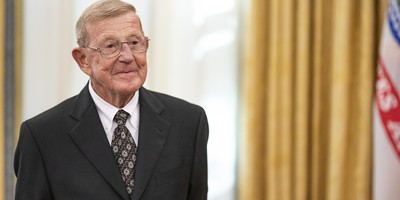You might think that being a Supreme Court justice would be the top of the line job for someone in the legal profession. But, many Supreme Court decisions suggest that too many justices are not satisfied with their role, and seek more sweeping powers as supreme policy-makers, grand second-guessers or philosopher-kings.
The latest example of this is the recent Supreme Court decision in the case of Graham versus Florida. The issue was whether the Constitution permitted a state to impose a sentence of life without the possibility of parole when the criminal was a youthful offender. The Supreme Court voted 6 to 3 that this was a violation of the Constitution.

If your copy of the Constitution doesn't say anything about youthful offenders, do not worry that you have a defective copy. There is no such statement in the Constitution. What the justices cited as the alleged basis for their decision was the Eighth Amendment's prohibition against "cruel and unusual punishments."
Since 37 out of the 50 states permit sentences of life without the possibility of parole, such a sentence is not unusual. How about cruel? If it is cruel, then why is it OK to impose that sentence on people who are not youthful?
The case of Graham versus Florida involved a 16-year-old repeat offender, who was convicted of a home invasion robbery while on probation from a previous felony. He was sentenced to life imprisonment without the possibility of parole. The Supreme Court then over-ruled that decision.
The role of an appellate court is not to simply second-guess the decision of the trial judge and jury, much less usurp the responsibility of legislatures to make social policy. But the pretense of applying the Constitution gives appellate judges the power to do both.
Recommended
The bolder justices go further, citing practices in other countries as supporting their decisions that are supposedly based on the Constitution of the United States. If justices can pick and choose which legal principles and practices they will follow, from the many widely varying principles and practices in countries around the world, then they can find a basis for doing just about anything they feel like doing.
This too goes counter to the very basis of American government, as a system in which "We the people" ultimately govern ourselves through representatives of our own choosing and the officials appointed by them. Once appellate judges are free to base their rulings on what people do in India, Egypt or Germany, Americans are no longer a self-governing people.
As if to add a touch of farce to lighten the tragedy of the dismantling of the Constitution, Supreme Court justices on opposing sides of the case of Graham versus Florida cited statistics seeking to show that there was national consensus for or against life sentences without the possibility of parole.
Appellate courts, including the Supreme Court, are not institutions equipped to make policy judgments like that. Legislatures exist to make policy judgments-- and to be voted out of office if these policy judgments turn out to produce results that the electorate do not want. But there are no such corrective mechanisms in place if Supreme Court justices misjudge.
Finally, there is the old, moth-eaten argument cited by Justice John Paul Stevens, that the society is evolving and therefore the interpretation of the Constitution must evolve with it.
Nobody-- from the moment that the Constitution was adopted in the 18th century to the present-- has ever denied that societies evolve, and that their laws must evolve to meet changing circumstances. But, unless Justice Stevens is either stupid or dishonest, he cannot leap from a need for laws to change to the conclusion that it is judges who must be the ones to make those changes.
Just saying the magic word "change" does not justify judges grabbing the power to make whatever changes they please in the law. There are, after all, two other branches of the federal government, specifically charged with legislative and executive responsibilities and powers, not to mention the Constitutional Amendment process.

























Join the conversation as a VIP Member